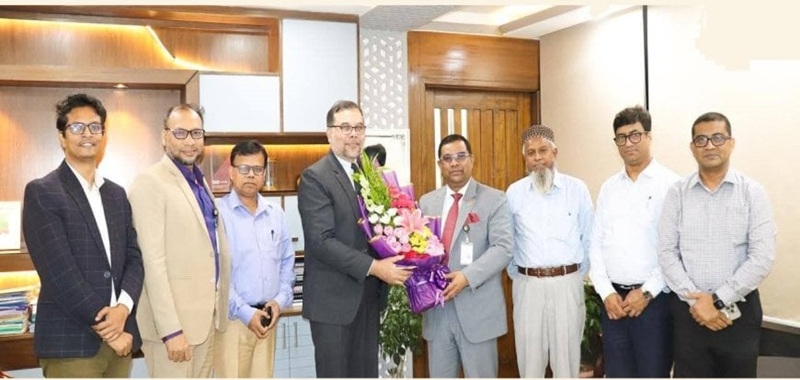Bangladesh Forms Interim Government: Key Student Leaders Nahid and Asif Take on Crucial Cabinet Roles

Dhaka, August 9, 2024 — In the wake of the recent uprising that toppled the Sheikh Hasina government, Bangladesh’s newly formed interim administration has appointed two prominent student activists, Md Nahid Islam and Asif Mahmud, to key ministerial positions. Their appointments, announced in a circular issued on Friday, signal a shift in the country's political landscape, with young leaders now playing a central role in governance.
Md Nahid Islam, a sociology student from Dhaka University (DU), will assume leadership of the Ministry of Posts, Telecommunications, and Information Technology. Nahid was born in Dhaka in 1998 and gained prominence as a central figure in the quota reform movement. Initially focused on reforming the public sector recruitment system, the movement evolved into a broader non-cooperation movement that ultimately contributed to the downfall of the Hasina government.
Asif Mahmud, another influential student leader, has been appointed as the head of the Ministry of Youth and Sports. Hailing from Comilla, Asif is a linguistics student at DU and was active in the 2017-18 session. He was a key coordinator of the Students Against Discrimination movement and served as president of the Chhatra Odhikar Parishad at DU, making significant contributions to the protests that catalyzed political change.
The interim government’s decision to entrust such vital portfolios to young, formerly dissident voices reflects the changing dynamics in Bangladeshi politics. It underscores a commitment to addressing the concerns of the country’s youth, who were instrumental in the recent political upheaval.
The appointments of Nahid and Asif mark a departure from the previous government’s leadership. Zunaid Ahmed Palak, who served as the state minister for ICT, and Nazmul Hassan Papon, who was the sports minister under Hasina, have been replaced by these younger figures. This move is seen as an attempt to infuse fresh perspectives into the governance of Bangladesh as the country navigates a period of transition.
The new cabinet’s composition, particularly the inclusion of these two student activists, has sparked widespread discussion and anticipation. Many hope that their leadership will bring about meaningful reforms and address the issues that have long plagued the nation's youth and education sectors.
As Bangladesh enters this new chapter, the roles of Md Nahid Islam and Asif Mahmud will be closely watched, with expectations that they will leverage their activist backgrounds to implement changes that reflect the aspirations of the new generation.









